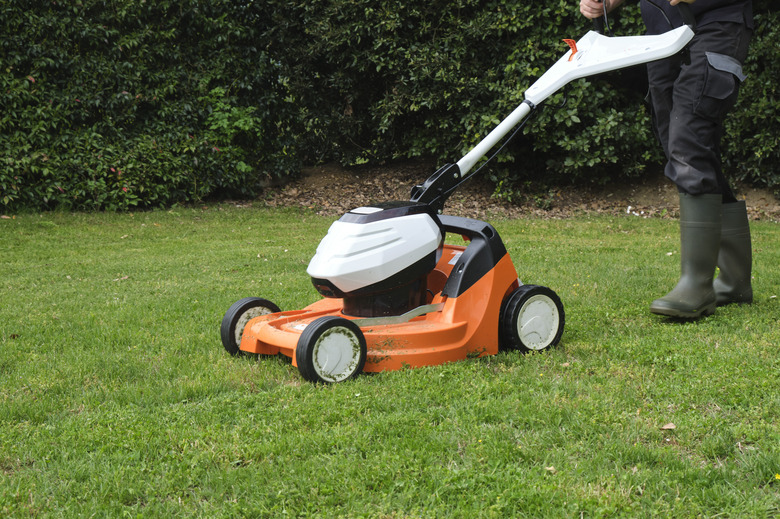Life Expectancy Of A Lawn Mower
We may receive a commission on purchases made from links.
Investing in a high-quality lawn mower (be it a manual, electric, or gas model) is one of the best decisions that a homeowner could make. And while nothing lasts forever, there are some important steps to take to ensure that your mower lasts as long as possible. Learn about the average life expectancy of a lawn mower, in addition to maintenance tips and the signs that you need a new mower.
How Long Does a Lawn Mower Last?
How Long Does a Lawn Mower Last?
There are several different types of lawn mowers, from riding mowers to standard and self-propelled walk-behind mowers to old-fashioned reel mowers. They're classified by their source of energy — manually powered, gas, or electric — and the type of blade or cutter they use. Most power mowers use a single straight blade, while reel mowers have multiple curved blades that cut like scissors. In general, life expectancy for gas mowers is five to 10 years, while electric mowers typically last between seven to 10 years (or even longer). Reel mowers can last indefinitely with the right care and regular sharpening. These are the factors that largely determine your mower's life expectancy:
- Usage: How often you use your lawn mower is important when measuring its lifespan. For example, a mower that's used twice a week will last longer than one that's used four times a week.
- Maintenance and care: Doing simple maintenance tasks every mowing season will increase the lifespan of your equipment.
- Brand and quality: If you spring for a better mower from a reputable brand, it's likely your mower will last longer than a budget model (but purchase price isn't everything; extra bells and whistles usually do not increase service life).
- Mowing conditions: A hilly, bumpy, patchy, or otherwise rough-terrain yard is much harder on a mower than flat planes of healthy turf. Some yards can be particularly hard on the drive trains of self-propelled mowers.
How to Maintain Your Mower
How to Maintain Your Mower
Taking proper care of your mower will ensure that it lasts longer. For all types of mowers, clean out the old grass and debris from time to time, and keep the blade razor-sharp. Other maintenance differs a bit between gas- and electric-powered motors. Here's how to maintain your gas-powered mower:
- Make sure your gas is clean and fresh.
- Change the oil and oil filter annually.
- Add a fuel stabilizer to the mower's gas tank at the end of the season or empty the tank by running the mower.
In general, electric mowers don't require as much maintenance because you don't have to change the oil or gas. Mainly inspect the cord or battery to ensure it's in good condition. Also, follow the manufacturer's recommendations for maximizing battery life.
Signs You Should Purchase a New Mower
Signs You Should Purchase a New Mower
Even the best lawn mower will need to be replaced at some point. Here are a few signs to look for to determine whether it's time for a replacement:
- You're having engine problems.
- Your mower keeps breaking down, even if you repair it.
- You have to make costly repairs on your mower (especially if the repairs are going to cost more than the mower itself).
- Your mower is more than a decade old.
- Structural elements, such as the mower deck and wheel mounts, are badly rusted.
